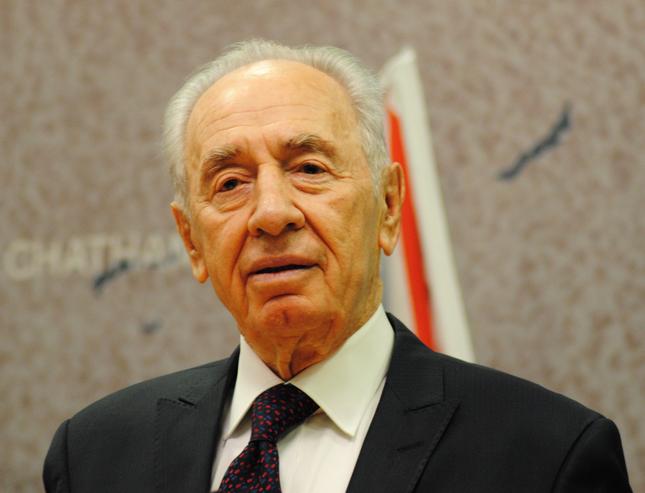Peres, Last of a Generation of Israeli Leaders, Dies
By • September 29, 2016 0 1177

The state of Israel, born in the aftermath of World War II and the Holocaust and made a reality after a fierce and dramatic war for survival against invading Arab armies, produced an inordinate number of vivid, dramatic, giant historical figures.
Shimon Peres, dubbed late in life “the grand old man of Israeli politics,” was a slightly later part of that generation, which produced such leaders as the prophet-like founding Prime Minister David Ben-Gurion, the dashing warrior Moshe Dayan, the diplomat supreme Abba Eban, the fierce Golda Meir, Likud’s often embattled Menachem Begin, who made peace with Egypt, and general-turned-peacemaker Yitzhak Rabin.
Even with a long life — he was 93 when he died Sept. 28 due to complications from a massive stroke — Peres may not have quite reached the stature of those leaders, perhaps because he lacked the dramatic voice, persona or charisma that some carried around with them like burning amulets. That’s not to say that Peres did not leave big footprints on the history of Israel, a history marked often by war and conflict, a kind of dual journey of survival and the still-frustrated efforts to find and make peace with its neighbors, especially the Palestinians.
Polish-born, he emigrated to Palestine in 1934, where Jewish settlers were already laying the groundwork for a new country. Peres was never a warrior, but his interests and many of his achievements would be in the arena of defense and diplomacy. For all his image as a negotiator, politician and diplomat, he left a remarkable record of achievement. His official life coincided with the terms of 10 American presidents. He served three times as prime minister of Israel, although he was never elected to the post.
In addition, he was foreign minister, in which capacity he was critical to and instrumental in paving the way for peace accords between Yasser Arafat’s PLO and Israel under Rabin. It was meant to be a blueprint for peace, something that never happened, but in its time it seemed a remarkable achievement. Rabin, Peres and Arafat received the Nobel Peace Prize.
The hopes for peace then seemed high, but they were quickly frustrated, beginning with Rabin’s assassination at the hands of an Israeli extremist. Peres succeeded Rabin, but was defeated by the inimitable Likud candidate Benjamin Netanyahu, who is also the current Israeli prime minister, often at odds with the Obama administration, especially over the controversial Iranian nuclear treaty.
Peres seemed the most urbane of men. He certainly shined in the public eye, if not in the eyes of his peers, many of whom seemed to mistrust him — even Rabin, who nevertheless made him foreign minister. He was a constant seeker of peace, but he also once supported Israeli settlement of the West Bank and Gaza.
Israel is different today, still embattled, but also a solid fact of life in the Middle East, with the United States still its closest ally, despite intermittent differences.
Peres lived through and was a part of the war from which Israel emerged as a functioning state, a war that was a close call. He did his part in a different way; as director of the defense ministry and later as defense minister, he helped create the Israel Defense Forces and Israel’s nuclear capacity.
Over time, Peres would become a seeker for the most elusive goal of all. There is some irony in the fact that the only functioning, if cool, peace treaty that Israel has was wrought through the efforts of the Likud leader Begin, in partnership with Egyptian President Anwar Sadat and U.S. President Jimmy Carter.
Peres was the last surviving member of that Israeli generation of leaders who built the modern state of Israel against what might have seen as insurmountable odds. Harder still is finding a permanent peace, but that work is still being done at the Peres Center for Peace in Tel Aviv.

